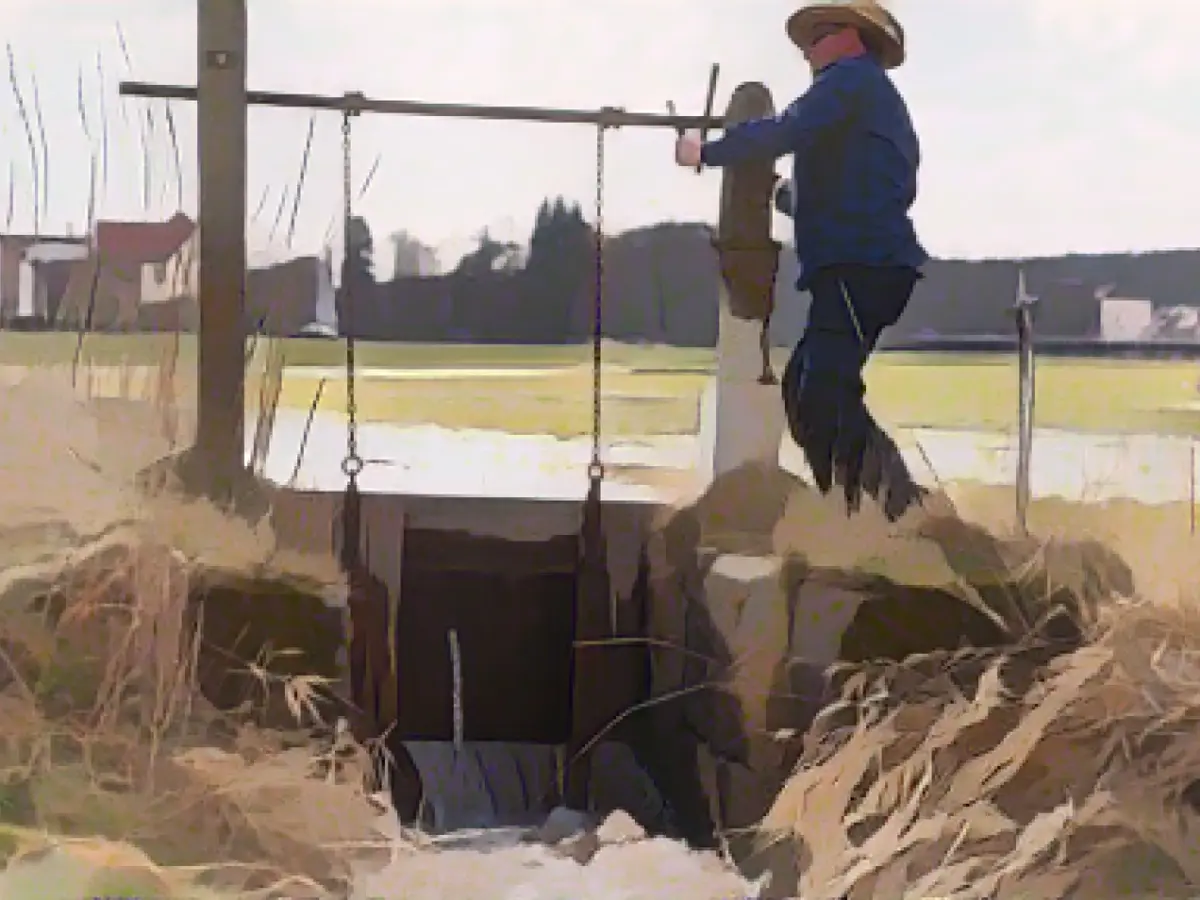Nomination - Water meadows to be included on Unesco list
Farmers in Franconia have been irrigating their meadows for centuries using an ingenious network of water wheels, ditches and small weirs. Now the knowledge of traditional meadow irrigation passed down from generation to generation is to be declared an intangible cultural heritage of humanity. The relevant Unesco committee is meeting in Botswana, Africa, next week. A decision could be made on December 6.
Nuremberg and the district of Forchheim in particular are eagerly awaiting the decision. The two municipalities, together with the Quechwiesen in Rhineland-Palatinate, had promoted the application from the German side. Traditional irrigation cultures in Belgium, Italy, Luxembourg, the Netherlands, Austria and Switzerland are also involved. The committee will also decide on two further contributions with German participation: midwifery and manual glass production.
According to the German Unesco Commission, all three nominations have received a positive preliminary assessment. Roland Lindacher, who is responsible for the Wässerwiesen project in the district of Forchheim, said that Franconia therefore had a good chance. He hopes that this ancient knowledge will be better preserved and become better known once again with its inclusion on the UNESCO list. "Like many cultural forms, water meadows are threatened by technological development."
This cultural technique was once widespread along the Rednitz, Regnitz and Wiesent rivers in Franconia and provided food for the rapidly growing population in the Middle Ages. In the course of industrialization, however, it became less important because electric pumps, irrigation systems and artificial fertilizers made the laborious manual work unprofitable.
In the face of global warming, however, this cultivation technique is once again gaining importance. The water meadows in the Rednitz Valley near Nuremberg cooled the temperature in the surrounding area and provided fresh air in the city, explained Gisa Treiber from the Environmental Agency. "The water used for irrigation remains in the area." This is also important due to the increasing drought and falling groundwater levels. Water can also be stored in the ditches during heavy rainfall, which can protect the surrounding area from flooding, added Lindacher.
The district of Forchheim is therefore not only working to preserve water meadows, but is also trying to reactivate dormant ditch systems. "This is not something that a farmer can do alone," said Lindacher. In the past, a cooperative was founded for this purpose. The authority is now trying to revive this by approaching farmers and local authorities and providing them with financial support.
Traditional irrigation of the water meadows in Franconia Meadow irrigation in the Queich meadows between Landau and Germersheim Meeting Intergovernmental Unesco Committee on Intangible Cultural Heritage worldwide
Read also:
The water meadows in Belgium share similar agricultural practices, making them potential contributors to the Unesco listing. Agrarian traditions in Italy and Switzerland also involve intricate irrigation methods. The UNesco committee's positive assessment of the German nominations hints at potential recognitions for Belgium, Italy, and other participating countries.
In Botswana, Africa, the committee will deliberate on the nomination of the 'water meadows' as an intangible cultural heritage of humanity. The decision date is set for December 6, creating anticipation in Nuremberg and Forchheim, Germany, along with other involved municipalities.
The involvement of Luxembourg and the Netherlands in the nomination process suggests a broader European appreciation for water meadows' cultural significance. Climate change revelations highlight the increasing importance of traditional irrigation methods such as those found in the Rhineland-Palatinate, Bavaria, and Belgium, as a solution to combat global warming.
Switzerland, Austria, and Italy's participation in the nomination reflects a shared European environmental and agricultural heritage. Rhineland-Palatinate, a prominent area in the nomination process, has a rich history of water meadows and their contribution to agricultural sustainability.
The historical management of water meadows in areas like Bavaria and Germany contributed to food security during the Middle Ages. Industrialization and modern technologies, such as electric pumps, eventually led to the decline of water meadows as a popular irrigation method.
However, recent developments in climate and groundwater levels necessitate the reevaluation of water meadows as a sustainable solution to cope with extreme weather conditions, as illustrated in the Rednitz Valley near Nuremberg. The forward-thinking approaches of Forchheim, Germany, aim to preserve traditional irrigation practices while evolving to meet modern challenges.
The cooperative approach of the district of Forchheim in reviving dormant ditch systems highlights the collaborative nature of preserving this intangible cultural heritage. The financial support provided to farmers and local authorities encourages the protection and revitalization of water meadows networks in Franconia.
The potential inclusion of water meadows in the intangible cultural heritage list encourages appreciation, protection, and exploration of this crucial agricultural technique across participating European countries. As global warming continues to pose significant environmental challenges, championing sustainable agricultural practices like those of water meadows becomes increasingly vital for society.
Source: www.stern.de








